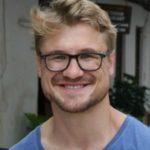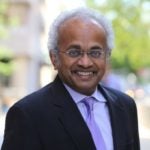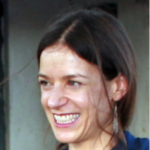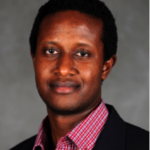Faculty

Laia Balcells
Professor, Department of Government
Laia Balcells is a political scientist specializing in the study of political violence, nationalism, and ethnic conflict. She earned her Ph.D. from Yale University in 2010 and has been Assistant Professor of Political Science at Duke University (2012-2017). She has been a Niehaus Visiting Associate Research Scholar at the Woodrow Wilson School of Public and International Affairs, Princeton University (2015-16). Her first book, Rivalry, and Revenge: The Politics of Violence during Civil War (Cambridge University Press, Cambridge Studies in Comparative Politics; 2017), deals with the determinants of violence against civilians in civil war and explores micro-level variation in the Spanish Civil War and Côte d’Ivoire. Her more recent work examines preferences for secessionism and their relationship with redistribution and identity-related factors. She has also recently explored post-war low-intensity violence (in Northern Ireland), wartime displacement (in Colombia and Spain), and cross-national variation in civil war warfare and its implications on conflict duration, termination, and severity. She is currently using design-based inference tools to study the consequences of violence and transitional justice in post-conflict settings. She uses a multi-method approach to her research questions, and she has a particular interest in the study of historical phenomena using the tools of political science and economics.

Jacobus Cilliers
Assistant Teaching Professor, McCourt School of Public Policy
Jacobus Cilliers is an assistant teaching professor at the McCourt School of Public Policy at Georgetown University. His primary research interests relate to the delivery of basic education in sub-Saharan Africa. He is currently Principal Investigator to three different field experiments of education programs – in South Africa, Kenya, and Uganda. In past research, he evaluated a community reconciliation program in Sierra Leone and conducted a field experiment on foreigner presence and generosity in Sierra Leone. Jacobus is originally from South Africa and completed his M.Phil (distinction) and D.Phil in Economics at the University of Oxford, where he was funded by the Rhodes Scholarship.

Jishnu Das
Professor, McCourt School of Public Policy
Jishnu Das is a professor at the McCourt School of Public Policy and the Walsh School of Foreign Service at Georgetown University. Jishnu’s work focuses on health and education in low and middle-income countries, with an emphasis on social markets, or common, but complex, conflagrations of public and private education and health providers operating in a small geographical space.
As part of this research, he has co-developed the largest and longest-running cohort study on learning outcomes in low-income countries and has led an agenda on the measurement of healthcare quality in low-income countries. The methods he has developed are now being used by The World Bank in its Service Delivery Indicators as well as by multiple research groups in India, Indonesia, South Africa, Kenya, Senegal, and Tanzania. His research has shown how government can use information, funding, and training programs to improve service delivery for the poor. His evaluations with multiple co-authors have led to the widespread adoption of a training program for informal providers (in West Bengal), health facility inspections (in Kenya), and networks for private sector providers (in India). He was also part of the team that developed India’s federal inpatient health insurance scheme, the RSBY, which reached 150 million people in 2016.

Raj Desai
Professor, PECO Field Chair
Raj M. Desai is Professor of International Development at the Edmund A. Walsh School of Foreign Service and in the Department of Government at Georgetown University, a Nonresident Senior Fellow at the Brookings Institution, and an affiliated researcher at the Stockholm Institute of Transition Economics at the Stockholm School of Economics. He is a specialist on problems of economic reform, foreign aid, and international development. In addition to coauthoring After the Spring: Economic Transitions in the Arab World (2012) and The World Bank’s World Development Report: A Better Investment Climate for Everyone (2005), he coedited Can Russia Compete? (2008) and Between State and Market: Mass Privatization in Transition Economies (1997). He has also authored articles on economic reform, entrepreneurship, and poverty alleviation in the American Political Science Review, Economics and Politics, the Journal of Comparative Economics, IMF Staff Papers, Economics of Transition, the World Bank Research Observer, the International Studies Review, the European Journal of Political Economy, the Journal of International Law and Politics, the National Interest, and Survival. He has received fellowships from the Qatar Foundation and the Swedish Research Council. He has served as occasional consultant to the World Bank Group, the Asian Development Bank, the UNDP, and other international organizations. He was previously a private sector development specialist at the World Bank, where he worked on the privatization and restructuring of public enterprises in eastern Europe and the former Soviet Union and on the recovery of financial systems following economic crises in East Asia and Latin America. He received his Ph.D. and M.A. degrees from Harvard University, where he was a National Science Foundation Fellow, and his B.A. from the University of California, Irvine.

Shanta Devarajan
Professor of the Practice of International Affairs and Concentration Chair for International Development
Shanta Devarajan has previously served as the Senior Director for Development Economics (DEC) at the World Bank and as the Chief Economist of the World Bank’s Middle East and North Africa Region. He has been a Principal Economist and Research Manager for Public Economics in the Development Research Group, and the Chief Economist of the Human Development Network, the South Asia Region, and Africa Region. He was a director of the World Development Report 2004, Making Services Work for Poor People. Before 1991, he was on the faculty of Harvard University’s John F. Kennedy School of Government. A member of the Overseas Development Institute’s Board of Trustees, and the author or co-author of more than 100 publications, Mr. Devarajan’s research covers public economics, trade policy, natural resources and the environment, and general equilibrium modeling of developing countries. Born in Sri Lanka, Mr. Devarajan received his B.A. in mathematics from Princeton University and his Ph.D. in economics from the University of California, Berkeley.

Garance Genicot
Associate Professor, Department of Economics
Garance Genicot joined Georgetown in 2003, before which she was an assistant professor of Economics at the University of California at Irvine (1999-2003). She received her B.A. in Economics from the University of Liege, Belgium in 1995 and her Ph.D. in Economics from Cornell University in 1999. She specializes in development economics. Her specific areas of research include risk sharing, informal credit markets, social networks, and inequality.

James Habyarimana
Associate Professor, McCourt School of Public Policy
James Habyarimana is an Associate Professor at the McCourt School of Public Policy. His research exploits variation generated by programs and policies in developing countries to illuminate the underlying causes for low and slowly changing human capital levels. Ongoing work evaluates interventions in road safety, maternal and child health, and water and sanitation. In education, his work focuses on evaluations of interventions to improve access and quality of schooling through technology, double shifting, private-public partnerships, and conditional cash transfers. He is a non-resident fellow at the Center for Global Development. He holds a Ph.D. in economics from Harvard University.

Sebastian Jilke
Associate Professor, McCourt School of Public Policy
Sebastian Jilke is an Associate Professor at the McCourt School of Public Policy at Georgetown University. He is also affiliated with the Office of Evaluation Sciences at the General Services Administration where he works with Agency partners to design and implement large-scale RCTs. His research applies insights from the behavioral sciences to public management and policy to study how government reforms affect public employees and the people they serve – especially with regard to social equity in access to public services and programs. He also works with public organizations in the US and abroad to improve government effectiveness across different domains.

Shareen Joshi
Assistant Professor, Edmund Walsh School of Foreign Service
Shareen Joshi is an Assistant Professor of Development Economics at the Edmund Walsh School of Foreign Service. She has a Ph.D. in economics from Yale University and an undergraduate degree in Math and Economics from Reed College. Her research broadly examines the design, implementation, and evaluation of poverty alleviation programs in the developing world. Current field projects, in partnership with the World Bank and the Government of India, include evaluations of large-scale employment and livelihood programs in rural India.

Amrita Kundu
Assistant Professor, MSB – Operations Area (OPIM)
Amrita Kundu is an assistant professor of operations and information management. She conducts interdisciplinary empirical research to discover ways in which businesses can create social value and improve environmental sustainability. She particularly enjoys hands-on field-work-driven projects where she can engage with local stakeholders.
Amrita completed her postdoc at Stanford Graduate School of Business, Ph.D. in management science and operations at London Business School, and Masters in environmental systems engineering from Johns Hopkins University. Previously, she worked at the World Bank.

Irfan Nooruddin
Hamad bin Khalifa Professor of Indian Politics, Edmund Walsh School of Foreign Service
Director, Georgetown University India Initiative
Irfan Nooruddin is Hamad bin Khalifa Professor of Indian Politics in the Walsh School of Foreign Service at Georgetown and is a member of the School’s Asian Studies Program. He directs the Georgetown India Initiative and advises the student-run Georgetown-India Dialogue. He is the author of Coalition Politics and Economic Development: Credibility and the Strength of Weak Governments (Cambridge, 2011). Professor Nooruddin’s specializes in the study of comparative economic development and policymaking, democratization and democratic institutions, and international institutions. He has been a Fellow at the Woodrow Wilson International Center for Scholars in Washington, DC, and is a Team Member with Lokniti: Programme on Comparative Democracy at the Centre for the Study of Developing Societies, New Delhi.

Kennedy Opalo
Assistant Professor, Edmund Walsh School of Foreign Service
Ken Opalo joined the African Studies Program in the Edmund A. Walsh School of Foreign Service in Fall 2015 as an Assistant Professor. His research interests include political institutions in emerging democracies, legislative politics, natural resource management, elections, and elite political stability, and the political economy of development. Ken received his BA from Yale University and his Ph.D. from Stanford University. His current book project examines the process of legislative development in Africa.

Steve Radelet
Donald F. McHenry Chair in Global Human Development, Director of the Global Human Development Program
Steven Radelet joined the Georgetown faculty in 2012 after serving as Chief Economist of USAID (2010-12), Senior Adviser for Development for Secretary of State Hillary Clinton (2009-10), and Deputy Assistant Secretary of the Treasury (1999-2002). His research interests focus on foreign aid, economic growth, debt, and financial crises, primarily in Asia and Africa. Dr. Radelet is the author of Emerging Africa: How 17 Countries are Leading the Way (2010) and co-author of Economics of Development (7th edition, 2012). He holds master’s and Ph.D. degrees in public policy from Harvard University, and a B.S. in mathematics from Central Michigan University.

Lahra Smith
Associate Professor, Edmund Walsh School of Foreign Service
Lahra Smith is a Political Scientist with a particular interest in African politics. She is an Associate Professor in the African Studies Program of the Edmund A. Walsh School of Foreign Service. Prof. Smith has conducted fieldwork on the role of political institutions in addressing conflict based largely on ethnic and language identities in Ethiopia. Her current research focuses on the questions of equality and citizenship in contemporary Africa. She was the Fulbright Visiting Research Chair in Ethnicity and Multicultural Citizenship at Queen’s University, Canada in 2010, and she has had funding support from the National Science Foundation, the National Endowment for the Humanities, and the Fulbright-Hays fellowship program.

Jennifer Tobin
Assistant Professor, McCourt School of Public Policy
Jennifer Tobin joined the McCourt School of Public Policy in 2008 after completing doctoral studies at Yale University and a fellowship at Nuffield College, Oxford. Her main research interests are in the political economy of development, specifically focusing on international investment, small and microfinance, trade, and development assistance. She is currently working on projects focusing on property rights enforcement for small investors, free trade agreements in emerging market economies, and the emergence of pro-poor economic policies in developing countries.

Rajesh Veeraraghaven
Assistant Professor, Edmund Walsh School of Foreign Service
Rajesh Veeraraghavan is an Assistant Professor of Science Technology and International Affairs (STIA) Program at Georgetown University’s School of Foreign Service. He was a postdoctoral fellow at the Watson Institute of International and Public Affairs at Brown University and was previously a Fellow at the Berkman Center at Harvard University. He works in the intersection of information technology, development, and governance, with a focus on India. His research combines both the design and study of technological solutions to development and governance problems. He is currently interested in understanding the role of information and technology in making systems of governance more participatory. Previously, he was an associate researcher at the Technology for Emerging Markets group at Microsoft Research, India. His work focused on building appropriate technologies for socio-economic development. His work led to several research publications, patents as well a non-profit spin-off called Digital Green on whose board he serves currently. Before that, he worked as a software developer at Microsoft for several years in the US.

Franck Wiebe
Professor of the Practice of Public Policy and MIDP Faculty Director
Dr. Wiebe serves as the Academic Director of the McCourt School’s Master in International Development Policy program, and hosts the biweekly “Development Practitioners” series that provides access for students to development professionals engaged in frontline applied research and program implementation. Dr. Wiebe has worked extensively in Bangladesh and Indonesia and has graduate degrees from Northwestern and Harvard Universities and a Ph.D. in Development Economics from Stanford University.

Andrew Zeitlin
Assistant Professor, McCourt School of Public Policy
Andrew Zeitlin is an Assistant Professor at the McCourt School of Public Policy and a Postdoctoral Research Fellow at the Center for Global Development. His research applies lab and field experimental methods to questions in two themes: the delivery of public services, and household strategies to manage risk. Andrew’s ongoing work includes projects on agricultural technology adoption in Ghana, health insurance in Kenya, education delivery in Uganda, and property rights in Tanzania.
